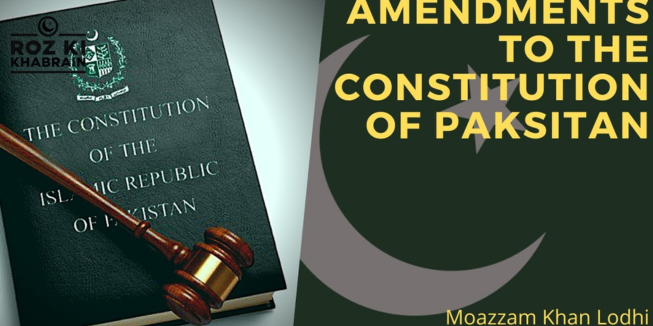President Asif Ali Zardari officially signed the 26th Constitutional Amendment into law on Monday, following its approval by both houses of Parliament earlier in the day.
In a significant political weekend, the ruling coalition secured the passage of the much-anticipated ‘Constitutional Package’ with a two-thirds majority in both the Senate and the National Assembly for the second time in two months.
The 26th Amendment introduces key reforms to the Constitution, mainly affecting the judiciary. Notable changes include limiting the Supreme Court’s suo motu powers, setting the chief justice of Pakistan’s (CJP) term to three years, and giving the prime minister the authority to appoint the next CJP from the three most senior Supreme Court judges.
On Sunday, the Senate passed the bill, containing 22 clauses, with a two-thirds majority. The National Assembly followed suit in a session that ran from late Sunday night into early Monday morning, passing the revised 27-clause version after incorporating Senate recommendations.
Following these parliamentary procedures, Prime Minister Shehbaz Sharif advised President Zardari to give his formal approval to the bill, which is now titled ‘The Constitution (26th Amendment) Act, 2024’. The National Assembly’s secretariat published a notification in the Gazette confirming the president’s assent on October 21, 2024.
PTI Criticizes Its Defectors
The Pakistan Tehreek-e-Insaf (PTI) strongly criticized its members who supported the Amendment. The party accused these lawmakers of betraying the public mandate they received in Imran Khan’s name, calling them “seditious” and labeling them “conscience-sellers” who would go down in history as disgraceful figures.
Before the vote, the PTI had warned it would protest outside the homes of those who defied party policy by voting for the Amendment. PTI MNA Zain Qureshi, son of former foreign minister Shah Mahmood Qureshi, denied rumors that he had supported the bill, declaring in a video message that he remained loyal to party policies and could not imagine voting for the legislation.
Parliamentary Votes
The bill, presented by Law Minister Azam Nazeer Tarar, passed in the Senate with 65 votes—just one more than the required two-thirds majority. Support came from the PPP, PML-N, JUI-F, as well as several senators from smaller parties and independents, including former caretaker prime minister Anwaarul Haq Kakar and Interior Minister Mohsin Naqvi.
In the National Assembly, where 224 votes were needed for passage, the bill garnered 225 votes. Twelve PTI and Sunni-Ittehad Council (SIC) members opposed the bill and walked out. While the ruling coalition contributed 211 votes, additional support came from the JUI-F and independent members.
After the bill’s passage, Prime Minister Shehbaz Sharif addressed the National Assembly, congratulating Parliament on what he called a “historic achievement.”




